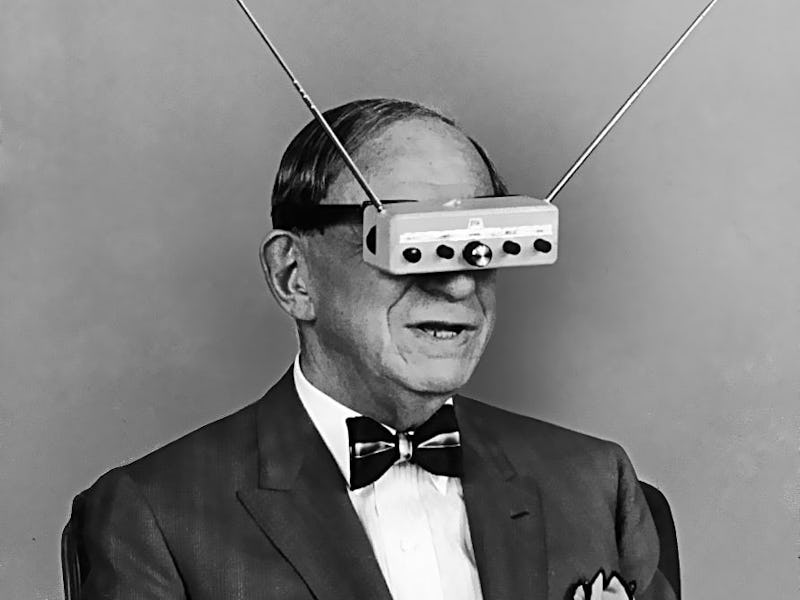Why Science Fiction Pioneer Hugo Gernsback Matters 131 Years Later
Happy birthday to the least-liked, most important man in the history of science fiction.

Hugo Gernsback, were he still alive, would be turning 131 years old on Sunday. Gernsback, born Hugo Gernsbacher, took to nicknames like a space-pig to cosmic shit: He was the “Father of Science Fiction” and “The Barnum of the Space Age” and, per H.P. Lovecraft, whom he stiffed, “The Rat.” The Hugo Awards and a Mass Effect 2 spaceship now borrow his names. In the beginning, before all the names, Gernsback was an amateur radio enthusiast with some big ideas: “I am a staunch believer in the glorious future of Radio in America,” he wrote in the inaugural 1919 issue of his magazine Radio Amateur News. Because that future didn’t arrive fast enough, he decided to make it up.
After successfully reprinting old H.G. Wells and Jules Verne stories in his radio rags, Gernsback postulated that there must be a crowd hungry for what he called “scientifiction.” He was right, and the science fiction community hatched more or less out of his head. He didn’t want people to forget that, because he was an egotist who put his name on the cover of his magazine, and because he was optimistic about the new genre, just as he was about the future. His 1911 novel Ralph 124C 41+, is filled with wonders of techno-utopias: Ralph gets the girl and saves the day thanks to stopping an avalanche with radio waves. Given that, it may come as little surprise to those unfamiliar with his work that he was considered by pretty much all concerned to be a better publisher than a writer. His true masterstroke was creating the first sci-fi pulp Amazing Stories, a low-to-middle-brow primordial soup from which names like Isaac Asimov emerged.
Befitting his station as a science fiction utopist, Gernsback loved to make predictions. As Smithsonian Magazine noted in 2012, Gernsback foresaw the rise of television in the age of radio, as well as the ramification of increasing life expectancies. But he also had nutty ideas like electrifying farmland to increase crop yields and making money in publishing. Gernsback gave himself a six-figure salary as head of Gernsback Publications while Lovecraft, for instance, earned a fifth of a cent per word.
Over the past two years, Gernsback’s legacy, or at least the bit that bears his name, has been embroiled in controversy. Angsty groups of conservative anti-literary sci-fi fans, known as Sad Puppies (also spawning a less pleasant group Rabid Puppies) have attempted to exert influence over the Hugo voting process. This has a bunch of sci-fi writers and fans up in arms. It would be sad if it weren’t so appropriate. But this is how Gersbeck liked his rabble: roused.
So happy birthday to you from the future, Hugo — you glorious rodent.